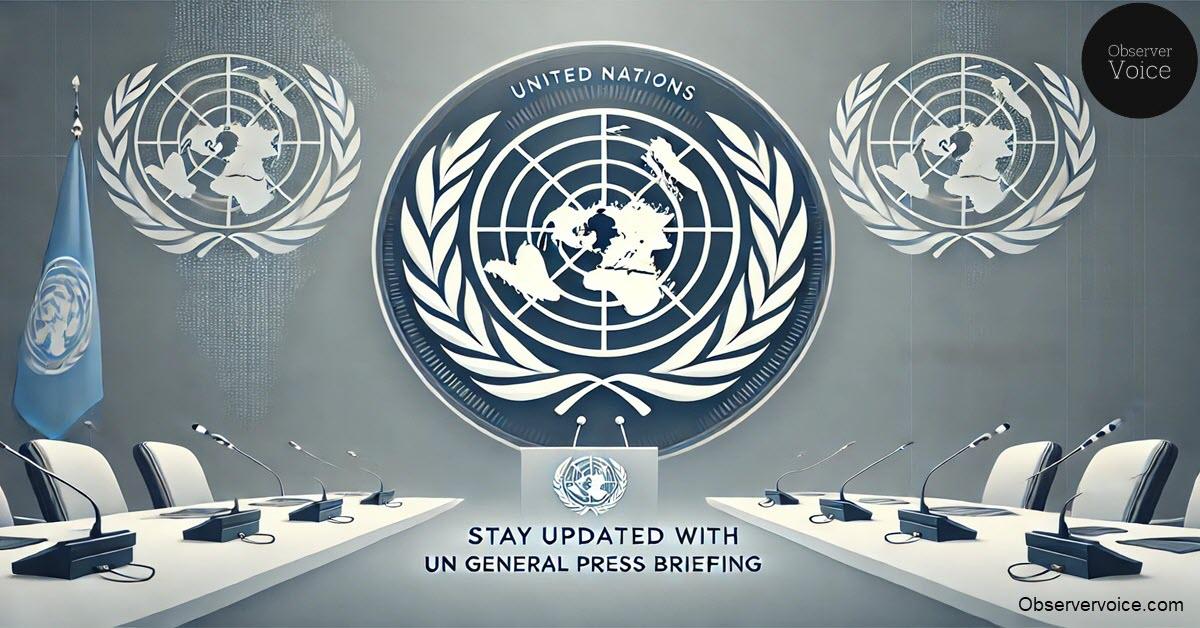Urgent Call for Nuclear Diplomacy in Iran

The Joint Comprehensive Plan of Action (JCPOA), commonly known as the Iran nuclear deal, is facing critical challenges as its expiration date approaches. With only ten months remaining until the “termination day” of resolution 2231 (2015), the international community is increasingly concerned about the deteriorating situation in the Middle East. The United Nations Security Council convened to discuss the pressing need for nuclear diplomacy, but members expressed differing views on how to restore the agreement and address the escalating tensions.
Current State of the Joint Comprehensive Plan of Action
The JCPOA was designed to limit Iran’s nuclear capabilities in exchange for sanctions relief. However, since the United States withdrew from the agreement in May 2018, the situation has worsened. Rosemary DiCarlo, Under-Secretary-General for Political and Peacebuilding Affairs, highlighted that the U.S. has not returned to the deal or lifted the unilateral sanctions imposed after its exit. Furthermore, the U.S. has not extended waivers for Iranian oil trade, which has further strained relations. Iran, on its part, has not reversed its steps away from nuclear commitments, leading to a significant impasse.
The International Atomic Energy Agency (IAEA) has reported that its verification and monitoring activities regarding Iran’s nuclear program have been severely impacted. The IAEA has lost continuity of knowledge about many aspects of Iran’s nuclear activities. Currently, Iran’s stockpile of enriched uranium is estimated to be approximately 32 times the amount permitted under the JCPOA. This alarming increase raises serious concerns about Iran’s intentions and compliance with the agreement.
Concerns Over Iran’s Nuclear Activities
The accumulation of highly enriched uranium and the expansion of Iran’s nuclear-enrichment infrastructure have become major points of contention. Stavros Lambrinidis, Head of the Delegation of the European Union to the United Nations, expressed grave concerns over Iran’s lack of cooperation with the IAEA. He emphasized that Iran’s actions are undermining the monitoring capabilities of the Agency, which is crucial for ensuring that Iran’s nuclear program remains peaceful.
Moreover, Iranian officials have hinted at potential changes in the country’s nuclear doctrine, which adds another layer of uncertainty. The international community is particularly worried about Iran’s military support to Russia amid its ongoing conflict in Ukraine. The representative of the United States echoed these concerns, stating that Iran’s intentions are questionable and that its nuclear program cannot be trusted to be exclusively peaceful.
The Role of Multilateralism and Diplomacy
Despite the challenges, many Security Council members stressed the importance of multilateralism and diplomacy in resolving the crisis. DiCarlo called on all parties involved in the JCPOA, including the United States, to prioritize dialogue and cooperation. She reminded the Council that the principles of negotiation and compromise were instrumental in reaching the agreement in 2015.
The representatives from various countries, including Germany and the Republic of Korea, emphasized the need for a diplomatic solution to the Iranian nuclear issue. They pointed out that the current atmosphere is not conducive to negotiations, citing Iran’s recent actions, such as transferring ballistic missiles and drones to third parties. The representatives of France and Japan also expressed concern over the IAEA’s loss of continuity regarding Iran’s nuclear program, highlighting the urgent need for transparency and dialogue.
Calls for Restraint and Future Actions
As discussions unfolded, several delegates urged all parties to exercise restraint and avoid provocative actions that could escalate tensions. Algeria’s representative called for a focus on diplomatic resolutions, while Mozambique’s delegate noted that confrontation often exacerbates conflicts rather than resolving them.
The representatives of China and Switzerland stressed the importance of returning to negotiations and strengthening dialogue. They highlighted the need for a political settlement that maintains the effectiveness of the JCPOA. The ongoing situation calls for immediate action to restore trust and create an environment conducive to negotiations.
In conclusion, the urgency for nuclear diplomacy in Iran cannot be overstated. As the expiration date of the JCPOA approaches, the international community must work collectively to address the challenges and ensure that Iran’s nuclear program remains peaceful. The path forward requires commitment, dialogue, and a renewed focus on multilateralism to prevent further escalation in the region.
Observer Voice is the one stop site for National, International news, Sports, Editor’s Choice, Art/culture contents, Quotes and much more. We also cover historical contents. Historical contents includes World History, Indian History, and what happened today. The website also covers Entertainment across the India and World.

